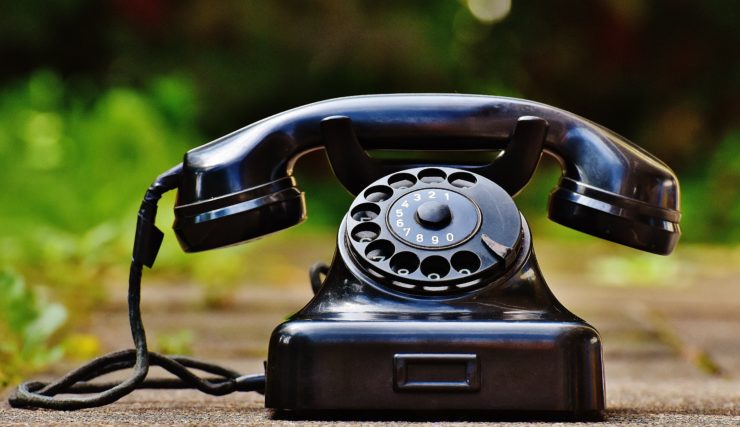How I Lobotomized My Smartphone (And Why You Should, Too)
 > It's not designed to help us. It's designed to keep us hooked.
> It's not designed to help us. It's designed to keep us hooked.
— Tristan Harris
Six months ago, I realized I had a creeping smartphone problem. At work, I constantly checked for breaking news. I looked up random facts at dinner (did you know corn is actually a grass?). I checked my email while playing with my daughter. Like many people, I was addicted to my smartphone.
A tool is simply an implement we use to help us achieve a goal, and the smartphone is an incredible tool. It’s transformed modern life. But unlike, say, a hammer, the smartphone has goals of its own. We use our phones to enrich our lives, and our phones use us to enrich others by gradually manipulating us into spending more and more time on our phones. In other words, as we use our phones, our phones use us.
A few months ago, frustrated with repeated failures to curb my smartphone habit and intrigued by the following video, I resolved to lobotomize my smartphone.
It’s awesome, you guys. Join me! Let’s look at four ways to make your smartphone a little less smart and regain control over your relationship with it.
Put the screen in grayscale
As Vox points out in the video above, certain colors grab our attention and make us more likely to act. Certain color combinations do the same thing—have you ever noticed how many billboards and movie posters are set against a blue and orange background?
Eye-catching colors are everywhere on our phones. We all feel a compulsion, when we see a bright red notification hovering in the upper-right corner of an app icon, to open the app and get rid of the notification. When everything is grey, the playing field is leveled. Simply put, setting your screen to grayscale (through your phone’s Accessibility settings) forces your phone to make its case for your attention with information, not manipulative psychological trickery.
Hide the web browser and axe some apps
Some of what we do on our phones is important. Some of it is a waste of time. How to tell the difference?
After some reflection, I found that most of my time-wasting behavior took place in my web browser and my email app (and when I was still active on social media, my Facebook and Twitter apps). So I deleted my Gmail app, axed several time-wasting apps, and hid the web browser behind a difficult-to-remember parental restriction code. Yes, I’m essentially treating myself like a child. But it works! Now, if I really want to know whether the band Chumbawumba is still together, my phone can’t help me—I have to find a computer and look it up. This is a much higher barrier to action, and that’s a good thing.
I encourage you to do the same. Consider ditching your phone’s web browser and removing non-essential apps. Chumbawumba can wait. And if you’re curious, they broke up in 2012.
Notifications? Only from real people.
Who deserves to interrupt you?
It’s an important question. Your family? Your boss? Good friends? All three, you’d probably agree. The power to interrupt is a privilege, and as Vox suggests, only real people should get it. Doing our best work requires focus and mindfulness, and interruption shatters both. It’s not a power to be granted lightly.
Turn off all notifications that don’t originate directly from another human being, and you’ll realize how much power over your attention you had been giving to corporations in Silicon Valley.
Track smartphone usage
As I wrote about here, I use an app called Moment to track my daily phone usage. Moment provides a wealth of information about smartphone usage, from minutes used per day to “pickups” per day. Since making the changes above, I’ve seen my phone usage decrease from ~3 hours a day to ~45 minutes. Just the act of measuring smartphone usage goes a long way toward reducing it. As Peter Drucker famously said, “What gets measured gets managed.”
Together, these changes yield what I call a lobotomized smartphone. It’s a device that lets me make phone calls, text, listen to music and audiobooks, take notes, track my calories, check the weather, get directions, videoconference, record a quick demo of a song, and check our investment portfolio. It doesn’t let me read Google News, encourage me to obsess over my website stats, or tempt me to count re-tweets. It’s much less fun to use, and that’s a good thing. My phone is still smart, but it’s now clear who’s running the show.
Isn’t that way it should be?